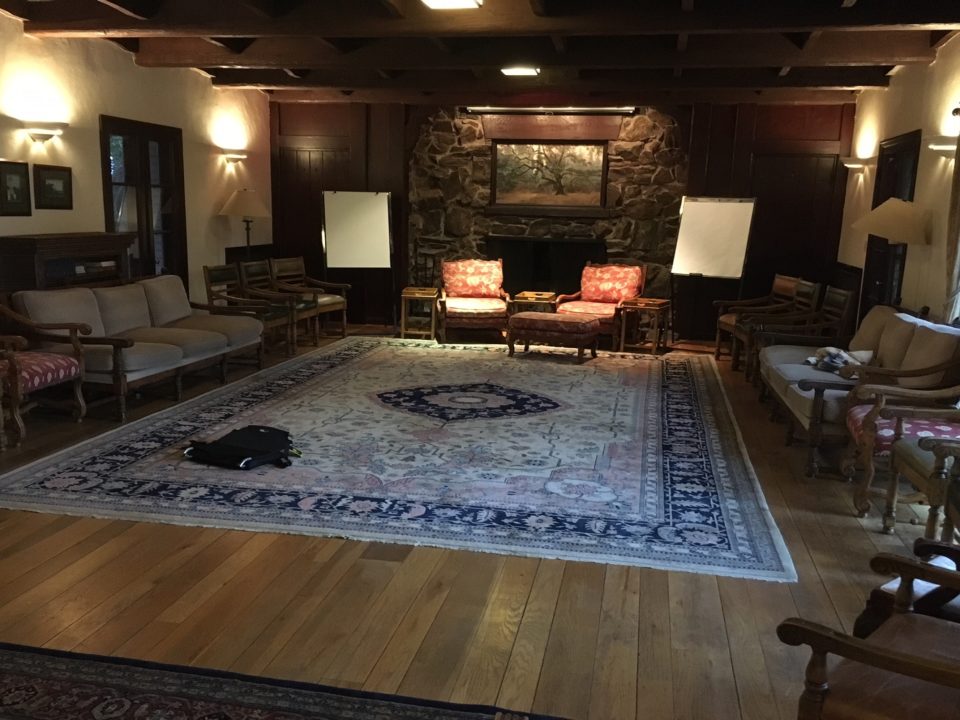Suffering in Good Conscience

The Roots of Marin NLP
January 9, 2009
What’s Right About What’s Wrong
January 9, 2009Suffering in Good Conscience: the damn choice between feeling innocent and being happy
by Volker FrankNLP Marin Master Practitioner graduate
First published in Open Exchange magazine (2008)
When we think about issues of conscience, we quickly go into the large moral and political questions of our times, like a woman's right to choose, fighting a good or evil war, economic exploitations, and so on. And yet, our conscience is hard at work every day supporting us with our choices and decisions having our best interest at heart. We know we've chosen "right" by the immediate sense of comfort - the signature signal from our conscience. Are we in line for happiness if we follow our conscience, if we are "good" and do the "right" things? Then where do the difficulties and suffering enter the picture? Is it that we are flawed and full of sin?
Our decision-making processes are complex, mysterious and, from a right/wrong perspective, error-prone at best. There are so many conflicting values and beliefs pushing and pulling us that it is often preferable not to think about it too much. Could that contribute to the fact that lasting happiness is so elusive?
What if our conscience is not the moral barometer most of us were taught it is? What if it tells us little about good and bad, right and wrong? What happens when we look at it from the perspective of relationships and our sense of belonging? When a choice intensifies our sense of belonging, we feel good and innocent; when it threatens our sense of belonging, we feel bad and guilty.
The German psychologist, Bert Hellinger, offers us this new perspective. He developed a way to experience first-hand how powerfully our conscience rules our lives and choices together with an appreciation for the mixed results we are getting. His approach, Constellation work, also offers us the felt sense of what it's like to re-choose for a different experience - a happier one if that's what we desire. We can see the dynamics of conscience play out in three ways, which are well designed to support the strength of tribes, families and groups of all kinds.
1) Balancing giving and taking
Let's consider two friends. When one of them helps the other, the helper experiences a sense of comfort and entitlement - signals from the good conscience. The one receiving the support experiences a sense of guilt and obligation. It's the bad conscience nudging us to restore the balance. Now, many of us know people who love to help and give. They live in the comfort of innocence/giving and manage to avoid the guilty feelings of receiving. Unfortunately, the imbalance creates isolation. The people they treat so well, who are unable to reciprocate, withdraw from the helper after awhile. The helper ends up alone, often with a righteous anger about thanklessness that further supports the sense of innocence and good conscience.2) Respecting membership
Our conscience tracks that all members of a tribe are fully acknowledged and included. In families, that means that everybody has the same inalienable right to belong. When somebody is excluded, the conscience creates a balancing movement, which compels another person to unknowingly represent and remember the excluded one. Take the example of Eric (name changed), who experienced exclusion and isolation at work. A Constellation revealed for him that he had identified with an uncle who died young. Because of the tremendous grief, the family stopped talking about the dead uncle and he became virtually forgotten (excluded). Out of love and following their conscience, new members of a family will do everything they can to restore the balance. In this case Eric attempted to "re-member" his excluded uncle by unconsciously recreating a similar kind of exclusion in his life. Eric has the comfort of innocence and a good conscience by doing the "right" thing, unaware that he is also accepting the suffering for himself. Knowing about the connection, Eric can consciously include his uncle as part of the family, fully step into his own life, and his rightful place at work.3) Respecting order
In a tribe, those who come before have precedence over those who come later. When we respect seniority, we experience loyalty and pride, as we often do with teachers and mentors. When we don't, we experience fear of retribution. This is an important dynamic between parents and children. When a child judges or dismisses a parent, the child, in effect, takes a stance of being "bigger," which has a weakening effect. In Eric's example, he interfered with the affairs of his grandparents by wanting to fix the exclusion through creating the same dynamic in his life. However, when he accepts and respects their choices without judgment, his conscious inclusion of his uncle strengthens him.In our Western culture, we are essentially blind to these tribal dynamics and the ways our conscience guides our behavior and affects our quality of life. Constellations reveal these dynamics, which leads to new choices, away from the old suffering. It turns out that when we re-choose to step more fully into our lives, we often face temporary guilt feelings with the fear of exclusion. If we want to gain strength, personal weight and step into our own happiness, we must give up the comfort of our "good" conscience that comes with a blind sense of belonging and the feeling of innocence. It's a tough spot, but hardly a choice.




